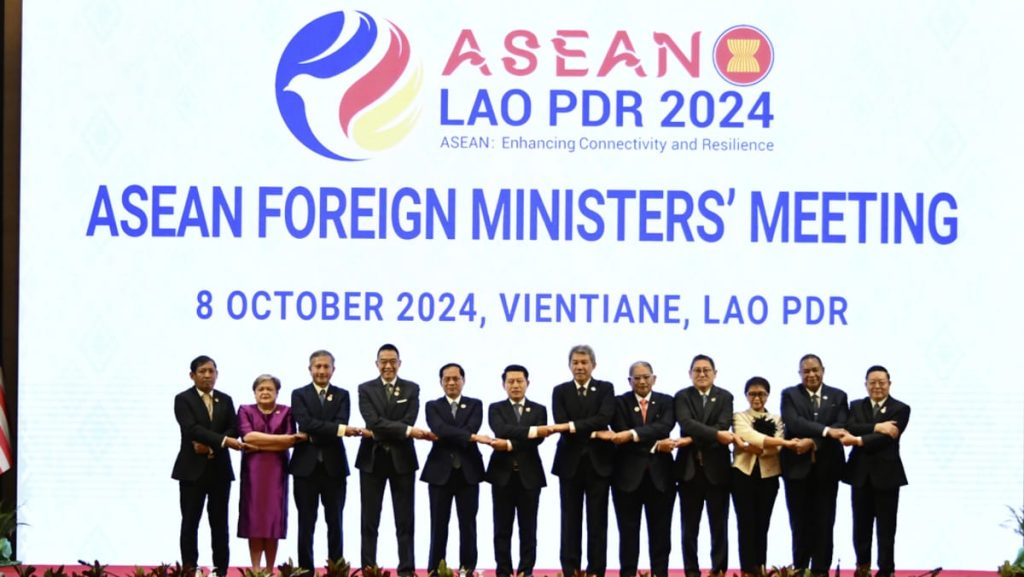Myanmar will send a representative to a regional summit in Laos for the first time in three years, as the ruling junta struggles to quell a civil war. The conflict will be a key topic at the meeting of leaders from the Association of Southeast Asian Nations (ASEAN). Efforts to find a diplomatic solution to the crisis have so far been unsuccessful, with ASEAN previously barring Myanmar junta leaders from its summits and the generals refusing to send non-political representatives.
Despite ignoring a “five-point consensus” plan aimed at restoring peace, the junta has sent a senior foreign ministry official as its representative to the upcoming meeting in Vientiane. This move is seen as significant, as it may indicate a willingness by Myanmar to engage in discussions and have their voice heard on the regional stage. Junta chief Min Aung Hlaing attended an emergency ASEAN summit in April 2021, but the bloc has not invited him to regular gatherings since. This latest development comes after the military issued an invitation to its enemies for talks aimed at ending the conflict.
The ongoing civil war in Myanmar has resulted in thousands of deaths and millions of people being displaced from their homes. The junta has faced resistance from ethnic minority armed groups and pro-democracy forces, leading to battlefield defeats and increased pressure on the ruling regime. Last weekend, Indonesia hosted talks on the Myanmar conflict involving ASEAN, the European Union, the United Nations, and various anti-junta groups. The international community continues to monitor the situation in Myanmar closely and is working towards finding a resolution to the crisis.
The participation of Myanmar at the upcoming ASEAN summit signifies a shift in the country’s approach to engaging with regional partners. The Myanmar military’s willingness to send a representative may indicate a recognition of the need for dialogue and engagement to address the ongoing conflict. The diplomatic efforts and discussions at the summit will likely focus on finding ways to bring peace to Myanmar and addressing the root causes of the civil war. Despite the challenges and obstacles faced in the past, there is hope that progress can be made towards resolving the crisis and improving the situation in Myanmar.
The involvement of regional and international partners in discussions on the Myanmar conflict demonstrates the importance of a coordinated and collaborative approach to addressing complex security challenges. The recent talks hosted by Indonesia brought together key stakeholders to explore potential solutions and pathways towards peace in Myanmar. The engagement of ASEAN, the EU, the UN, and anti-junta groups highlights the multifaceted nature of the crisis and the need for a comprehensive strategy to address the root causes of the conflict.
As Myanmar continues to navigate the challenges of the civil war and crackdown on dissent, the participation of the country in regional forums like ASEAN demonstrates a willingness to engage in dialogue and seek solutions to the crisis. The upcoming summit in Laos will provide an opportunity for leaders to discuss the situation in Myanmar, exchange viewpoints, and explore possible avenues for peace and reconciliation. Despite the complex and volatile nature of the conflict, there is hope that through sustained diplomatic efforts and regional cooperation, progress can be made towards resolving the crisis and bringing stability to Myanmar.


